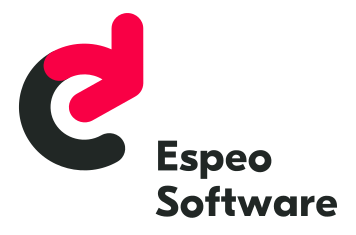Espeo Software participated in Arctic 15 last week. At the event, I represented Espeo Software together with my colleague, Aki Inkeroinen. Aki spent most of the time in the matchmaking area, meeting up with potential clients. I, on the other hand, chatted to founders, CEOs, sales/marketing people and investors at our company booth. These discussions often led to the topic of startup scaling, and how internationalization and outsourcing can help make the scaling process more painless.
Individual vision has a major impact on the outcome of the start-up. It’s influenced by the founder’s mindset and thoughts. In start‐up companies, where employees are in a relatively small number, the entrepreneur has a major influence on the vision, the mission, and the actions. Resource-wise, the capabilities can be small. There are only so many ideas one can have. However, it seems like start-ups are quicker to adapt to particular circumstances. This is the difference between entrepreneurial and planned strategy. Startups often have a simple and thus flexible structure and charismatic leadership. These factors can contribute to a faster reaction time.
Nevertheless, when aiming at growth, small companies should be aware of the fact that their organizational structure will change. It’s essential to reflect on two common themes regarding changes in organizational structure, or – as we know it – scaling.
Internationalization
Internationalization was a common topic during Arctic15 last week. It’s on the agenda of every start-up at some point, for some, right from the start and, for others, on a later stage.
As the organizers of Slush underline: the Nordics are the focal point of digital disruption. It is the home of industry-defining technologies and tech companies such as Skype, Spotify, Nokia, SSH, IRC, Linux, MySQL, Polar and Supercell. This is what the environment for Nordic startups looks like. They’re acting on a relatively tight, small market with a niche product or service. It’s obvious they need to cross borders in order to have a profitable market share.
The success of internationalization often rests on the product. It might be dependent on external and internal factors. By external, I mean legislation, restrictions, copyright laws, taxation of the foreign market. Internal factors include resources, such as skilled labor that knows the foreign market, or what is most important, a valuable network.
Outsourcing
One of the first things venture capitalist and business angels value in startups is the team. How they collaborate and what skillsets they possess often determine whether or not the company’s worth investing in. Either it is solved by recruiting, or by outsourcing the right skill set. What investors want to know is where their money is going. They are interested in the return on investment. They’ll ask – is the startup is ready to scale after investment? Do they have a plan for the next steps in order to succeed?
There’s a long list of successful startups that have used outsourcing. Low costs and well-matched skill sets have often been the resources behind the success of these start-ups. At Espeo Software, we are happy to be a part of these success stories. Knowledgeable talent at a lower cost? Means you can get the infrastructure developed faster and your company launched sooner. At Espeo Software, we are also used to being a part of the innovation phase of a startup. We’ve often used our skills as collaboration tools with our clients.



![Before You Start Outsourcing Software Development [Checklist]](https://espeo.eu/wp-content/uploads/2017/01/rlw-uc03gwc-glenn-carstens-peters-e1484576247712-300x200.jpg)
